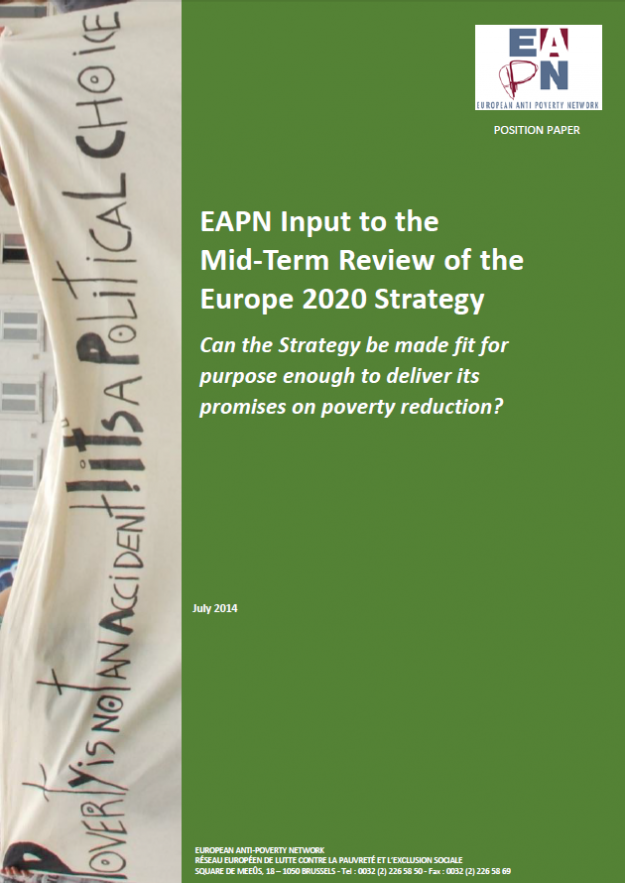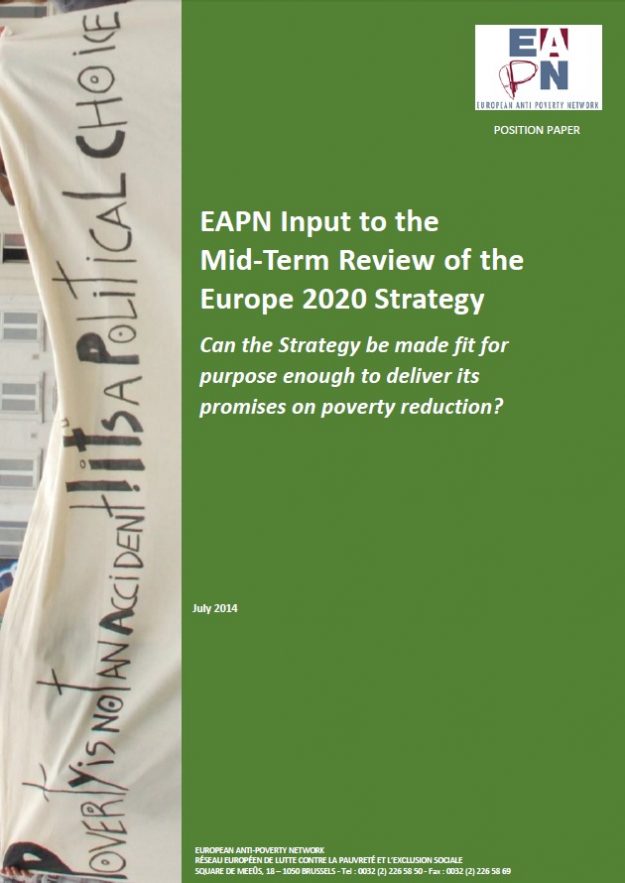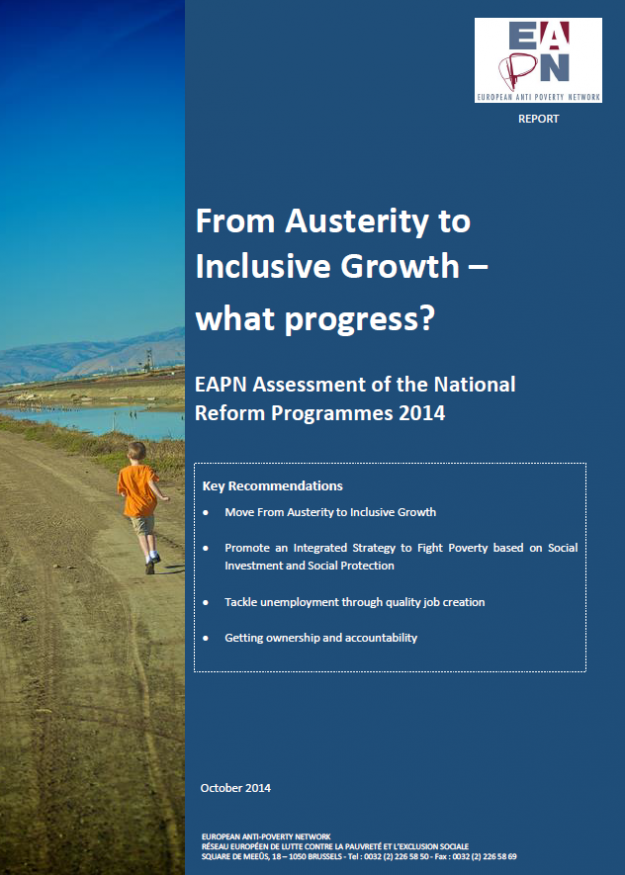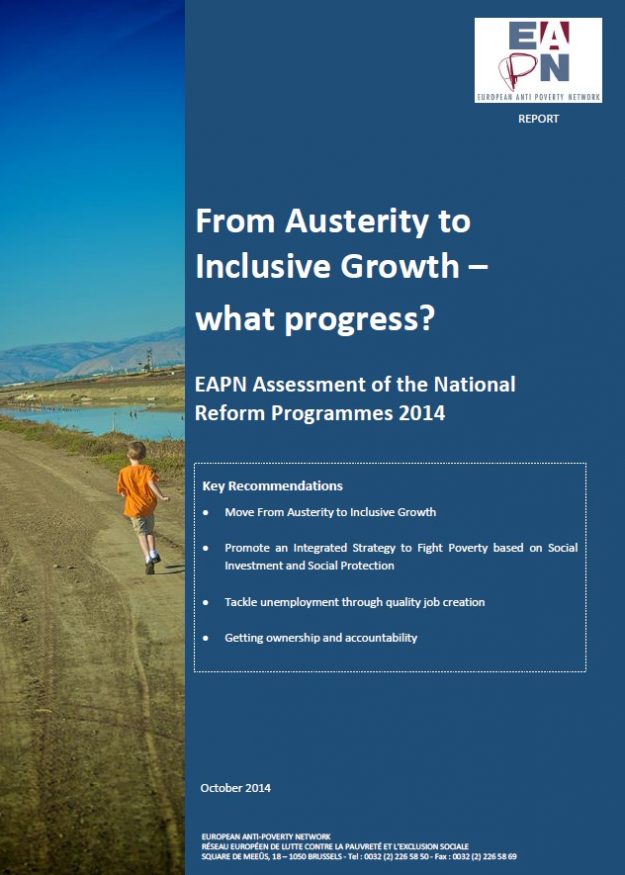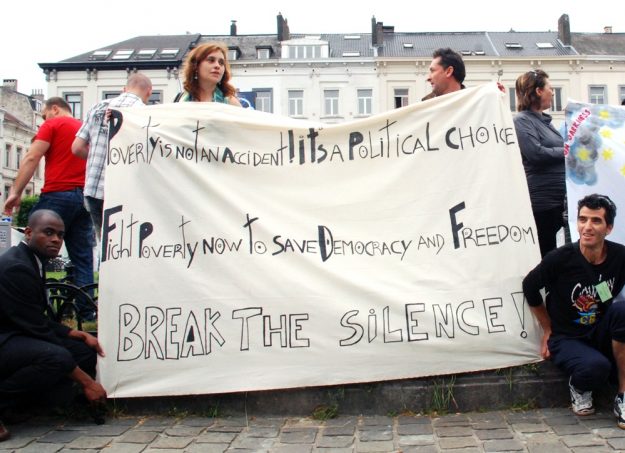8/10/2014 – This year marks the last round of National Reform Programmes (NRPs) before the Mid-Term Review of the Europe 2020 strategy in 2015. Whilst some signs of recovery have been seen in some countries, Europe’s social crisis continues to worsen, as a result of rising unemployment and continuing austerity policies.
In this context, EAPN members have continued to try to engage in the Semester and Europe 2020 process at national and EU level, with the hope that increased engagement could help to bring real progress on effective policies to meet the poverty target. EAPN’s report From Austerity to Inclusive Growth – what progress? builds on the 2013 NRP Assessment: Widening the Gap and EAPN member’s assessment and proposals for Country-specific Recommendations for 2014.

